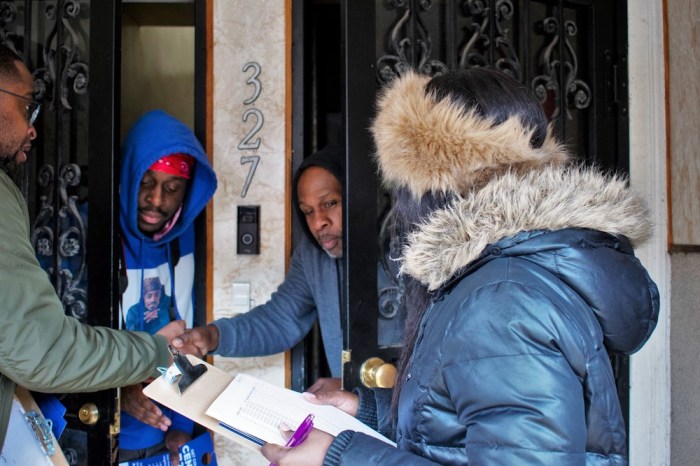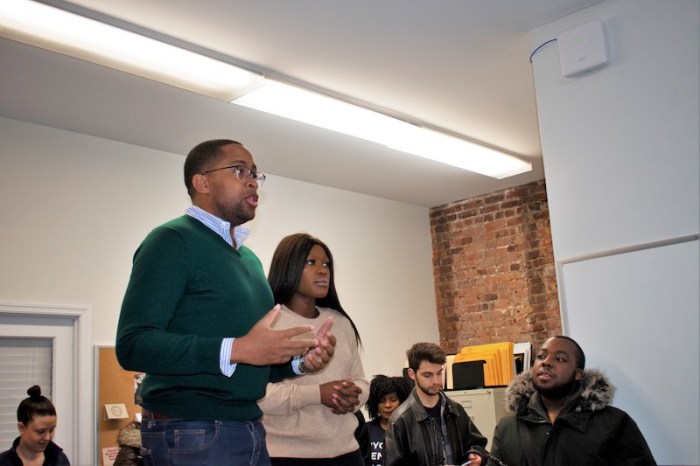Suozzi Offers Bipartisan Proposal On Immigration
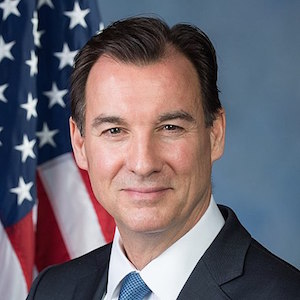
U.S. Reps. Thomas Suozzi (D-Eastern Queens, Long Island) and Peter King (R-Long Island) this week announced they are crafting a $10 billion bipartisan proposal that would provide a path to legal status for immigrants who otherwise would lose protection from deportation, as well as bolster border security and supply funding for the physical barrier that President Trump desires.
Key principles on the deal would include provisions for legalization for immigrants from countries facing the expiration of temporary protected status (TPS) as well as young immigrants known as Dreamers, brought illegally to the United States as minors.
The joint legislative proposal seeks a middle path between Democrats who don’t want to fund Trump’s border wall and Republicans who have opposed compromises over the last decade that offered those immigrants legal residency.
The bill would authorize $4.3 billion for about 700 miles of “physical structures” at the border and an additional $4.3 billion for border technology improvements, personnel costs and other programs focused on preventing migration from El Salvador, Guatemala and Honduras. Another $1.4 billion would be for administrative costs.
The measure, to be introduced within weeks, is a bipartisan alternative to another House bill that Democrats, including Suozzi, have signed on to this month. That legislation does not fund border security.
Suozzi said many affected immigrants “are trying their best, and on top of the normal anxiety of life — the school and jobs and family and health — they have to worry about being kicked out of the country” while no workable compromise is offered.
“It drives me crazy when even people on my side propose some idealistic solution that is never going to get done,” Suozzi said.
Meng Bill Proposal To Provide Menstrual Equity For All
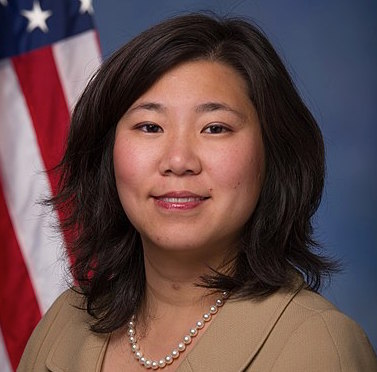
U.S. Rep. Grace Meng (D-NY) yesterday introduced the Menstrual Equity for All Act, the first comprehensive bill to address the different challenges that women and girls face in affording and accessing menstrual hygiene products.
Menstruation hygiene items, such as pads, tampons, cups, and liners, are necessary purchases for the vast majority of women. Popular culture would have you believe these products are ubiquitous and cheap, but many women face difficulty when it comes to affording and accessing them.
It’s estimated that up to 86% of women use tampons, up to 72% use pads, and 75% use panty liners. Most premenopausal women use menstrual hygiene products on a monthly basis and it is estimated that a woman will use up to 16,000 tampons in her lifetime. Regardless of income, women spend a significant amount of money on purchasing menstruation hygiene products each year.
Beyond being cost-prohibitive, different populations of women and girls may face challenges in accessing menstrual hygiene products. The Menstrual Equity for All Act aims to address these challenges by:
- Giving states the option to use federal grant funds to provide students with free menstrual hygiene products in schools – these grants already provide funding for health and wellness efforts;
- Ensuring that incarcerated individuals and detainees in federal (including immigration detention centers), state, and local facilitates have access to free, unrationed, menstrual hygiene products;
- Ensuring that no visitor is prohibited from visiting an incarcerated individual due to the visitor’s use of menstrual hygiene products;
- Allowing homeless assistance providers to use grant funds that cover shelter necessities (such as blankets and toothbrushes) to also use those funds to purchase menstrual hygiene products;
- Allowing individuals to use their own pre-tax dollars from their health flexible spending accounts to purchase menstrual hygiene products;
- Requiring that Medicaid covers the cost of menstrual hygiene products for recipients;
- Directing large employers (with 100 or more employees) to provide free menstrual hygiene products for their employees in the workplace; and
- Requiring all public federal buildings, including buildings on the Capitol campus, provide free menstrual hygiene products in the restrooms.
“Today, I am introducing legislation that ends our nation’s inequities toward women, girls, and individuals who menstruate. We can no longer tolerate these injustices and it must end,” said Meng. “We live in the richest nation and yet millions of women and girls suffer from issues of access and affordability. We want women to succeed and advancing menstrual equity is critical to reach this goal. I’m proud to stand with so many women and girls who have worked to realize the dream of menstrual equity for all. I urge my colleagues, on both sides of the aisle, to support my bill, and to help get it to the President’s desk.”
Gillibrand CalIs On DOJ To Keep Census Responses Confidential

U.S. Sen. Kirsten Gillibrand (D-NY) yesterday joined 14 Democratic Senate colleagues in calling on the Department of Justice (DOJ) to follow the law and protect the confidentiality of responses collected through the census.
According to recent news reports, DOJ officials had discussed potentially violating the confidentiality of personal data collected during the decennial census. In their letter to Attorney General William Bar, the Senators cited existing law that clearly protects the confidentiality of data collected through the census, and also warned that illegal data sharing can cause decreased participation in the census.
“With the start of peak census operations only 11 months away, we urge you to confirm that the Justice Department and all of its employees will uphold the airtight confidentiality protections for data collected in the census under current law,” the senate lawmakers wrote in part to Attorney General William Barr.
“It is of utmost importance that the 2020 Census—a constitutionally mandated activity—be conducted in a full, fair, and accurate manner to count all persons in our country. Any attempt by the Justice or Commerce Departments to diminish the count of particular communities—even indirectly, through actions that agency officials reasonably should know will increase fear that census responses could be used to harm people or their families—would be in contravention of the U.S. Constitution.”
Addabbo Introduces Package of Bills for Veterans
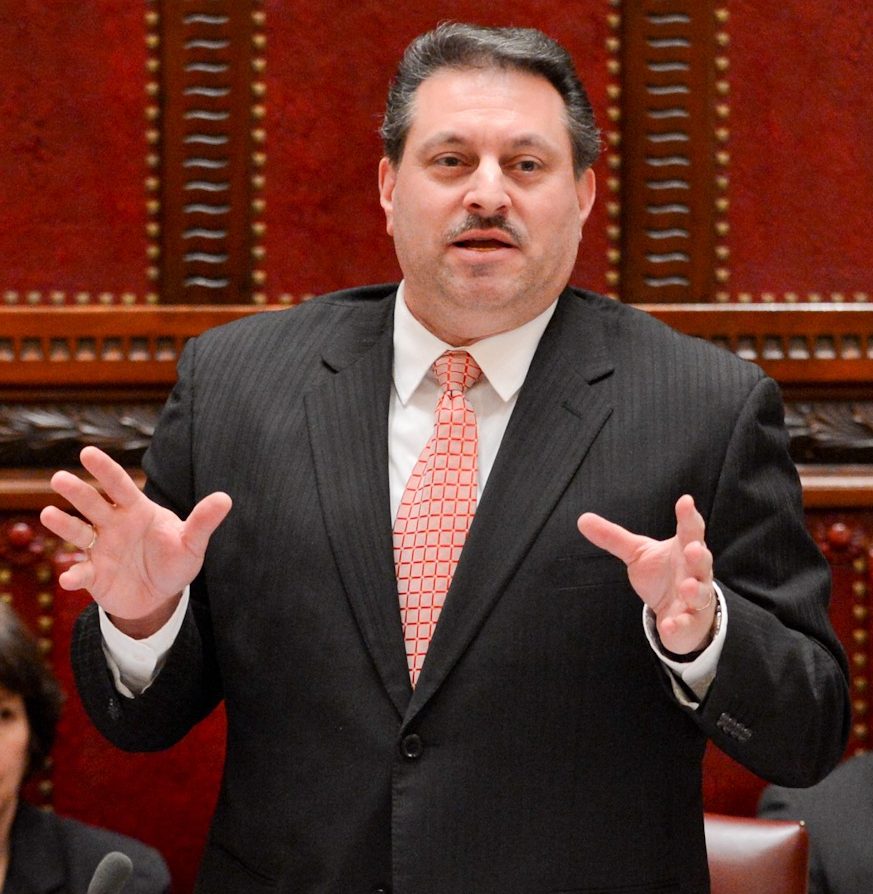
State Sen. Joseph P. Addabbo, Jr. (D-Howard Beach, Ozone Park, Woodhaven, Glendale, Middle Village, Maspeth, parts of South Ozone Park, Ridgewood, Woodside, The Rockaways) this week introduced a package of bills aimed at providing NY’s veterans with important financial and personal development benefits.
“This package of bills is a great way to give back to those who have selflessly served our country,” said Addabbo, a member of the Senate Veterans, Homeland Security and Military Affairs Committee. “Veterans often need a variety of services when they return home, but do not always know where to turn to find the array of programs that exist to help them.”
The package of bills under consideration in the Senate:
- Requires the Empire State Development Corporation “Small Business Revolving Loan Fund” to target and market to veteran-owned enterprises and service disabled veteran-owned enterprises (S.2739);
- Creates the option to contribute to the congressional chartered veterans’ service organizations and the Veterans Service Organizations Fund on the NYS personal, income tax returns (S.2740);
- Requires state-operated institutions, SUNY and senior colleges of CUNY, to recognize courses and award educational credits for courses that were part of a veterans ‘military training or service if the courses meet the standards of the American Council on Education or equivalent standards for awarding academic credits (S.2741)
“All of these efforts on behalf of veterans are vital to ensuring that our servicemen and women have straightforward access to healthcare, employment, affordable loans, education and other available services,” Addabbo added. “By helping veterans and the organizations that serve them, we are able to thank our former servicemen and women in concrete and meaningful ways. I am hopeful the Senate will vote to pass these important initiatives.”
Sanders’ Women Leadership Luncheon A Success
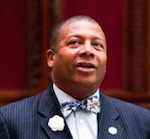
State Sen. James Sanders Jr. (D-Rochdale Village, Far Rockaway) hosted a Women’s leadership Luncheon at the Summerset at Locust Manor in Jamaica last weekend, where attendees were able to receive guidance and direction on how to maximize their potential and perhaps seek positions of community or political service.
Female elected officials including Assembly Member Catalina Cruz (D-Corona, Elmhurst, Jackson Heights) and State Sen. Julia Salazar (D-Brooklyn) and community leaders were on hand to impart their wisdom and advice.
“We are trying to train leaders and get them to the next level,” Sanders said. “One thing is certain; we desperately need women in government.”
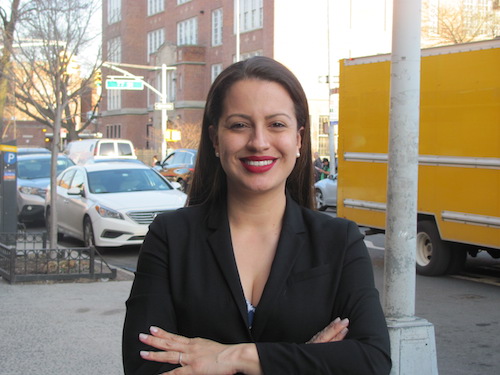
Cruz, who represents one of the most diverse districts in the nation, spoke about the importance of representing her varied constituency.
“People understand that when you are an elected, you show up for your people, and you make sure they know that you are one of them and that you care,” Cruz said. “The backbone of, not just the family, but of our communities, are women, and it is the women that make sure that many events like this one are put together, that we bring the children out to the cultural events, that we are going to church every Sunday.”
Keynote speaker, Salazar, Chair of the Women’s Committee on Health, spoke about why she chose to run for elected office and what it represents for other women, in relation to empowering them to become leaders.
“One thing that really compelled me to run is this idea that our community couldn’t wait another two years to have new leadership, especially with the rent laws expiring this year in June, and our community having seen an enormous amount of displacement, increasing homelessness, and people not being able to live in communities where they have lived for generations,” Salazar said. “I was still hesitant to run even after being asked a few times, but I knew time was precious, and I knew that I had a movement behind me.”










